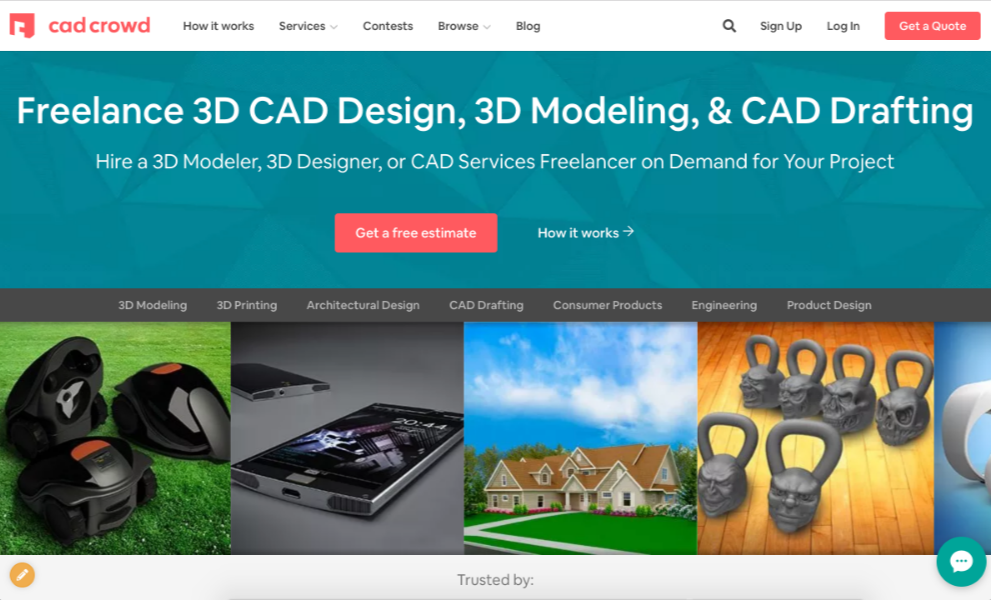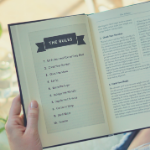Engineers no longer need to limit themselves to a set job. If you enjoy problem-solving and you don’t mind branching out on your own, becoming a freelance engineering consultant may be a great work opportunity for you. With the entire globe as your potential buyers, you will have a much broader selection of work to choose. There is no shortage of work for the right person.
What Is a Freelance Engineering Consultant?
A variety of different fields utilize engineering consultants. You might be asked to lead a project, or to work with a team on a construction site, or to help resolve issues that come up for a company.
When companies have a problem with their products, they don’t always have the time or expertise to figure out the problem. When these kinds of problems occur, they will typically hire a freelance engineering consultant to help them resolve the problem. You may be asked to find out why a particular product is failing or to help them to build a new product.
As a freelance engineering consultant, your job will be to help clients solve these problems or to find a way to create an entirely new product design initiative. This help can often be delivered remotely or even over the telephone, allowing you to help customers from anywhere in the world without charging hefty travel fees.
Skills Needed to Become a Freelance Engineering Consultant
While many jobs require an education, this job requires somewhat more than that. Not only do you need all the usual skills in engineering, including a degree, you’ll also have to pick a niche and strive to be the very best in that field. Engineering consulting may not be the job for you if you don’t have a strong work ethic and drive to be the very best.
People who are looking for consultants don’t need an average engineer. They can hire an engineer for their team, and likely already have one on staff. They need someone who has developed a reputation for themselves in the field and have become the very best.
Of course, there aren’t a lot of celebrity engineers hanging around, but you can help establish yourself as an expert by putting together a complete list of your skills, certifications, and education. Don’t hold back when trying to establish why you are the best at what you do.
Remember that the people who are looking to hire you are hiring you for your opinions. If you are overly modest and humble, you’re not going to assert yourself with the perspectives they are paying you to give them. This approach doesn’t mean being perceived as arrogant and rude, but confident, particularly when discussing problems with customers.
Getting Hired as a Freelance Engineering Consultant
Engineering consultants are in high demand. If you have the right skills for the job, there is no end to the companies who would be glad to have your services. As a freelancer, however, finding these people may take know how.
Your best bet is to join freelancing websites that help you find customers. General freelancing websites such as PeoplePerHour and Upwork are good options, however, you’ll also want to check out engineering focused platforms like Cad Crowd (our platform) and alternatives sites like Kkooee.
Platforms like Cad Crowd link freelance engineers in a variety of fields (i.e., mechanical engineering services, finite element analysis, electrical engineering, reverse engineering, 3D modeling services, etc.) with companies on demand. You create a profile with your qualifications listed and apply to any projects that interest you. It’s ideal because all of the companies on the website are specifically looking for engineers, limiting how many job listings you have to search.

To establish yourself as one of the best, consider hiring a professional to update your resume. A resume that truly shines will stand out among others; It is worth the money to an expert design your resume.
List all of your skills, education, certifications, and the most prominent companies for whom you have worked. It’s important not to hold back when creating your resume since you are trying to establish yourself as one of the best in the field. A resume that is well put together is far more likely to attract interest than one that appears to be amateur.
Is Freelancing Right for You?
 Before you put in your two-weeks’ notice and strike off to become a freelancer, consider what you are doing. Freelancing means no steady paycheck, and some of the differences in competition may shock you. A project you would typically quote at $100/hour may be underbid by engineers that are willing to work on the project at less than half of that hourly rate. Some people may request you do projects for ridiculously low hourly rate and are unwilling to negotiate.
Before you put in your two-weeks’ notice and strike off to become a freelancer, consider what you are doing. Freelancing means no steady paycheck, and some of the differences in competition may shock you. A project you would typically quote at $100/hour may be underbid by engineers that are willing to work on the project at less than half of that hourly rate. Some people may request you do projects for ridiculously low hourly rate and are unwilling to negotiate.
This scenario is, unfortunately, a normal part of freelancing. Before you set out to take this approach to your career, you must sit down and decide what you are worth and what you want to be paid. If you are unwilling to take $25/hour for a huge project that will take hours or even days of your time, say no.
It’s fairly common for clients to ask for extremely low prices from freelancers. You need to balance your need for clients and a revenue stream, with how much you are willing to work for the freedom of being a freelancer.
Despite the sometimes lower pay, freelancing has a lot of benefits. You are free to choose your clients, what projects you want to work on, and when you want to work. If being able to be there for your child’s first play is important to you, you can adjust your hours so you can do that. Since work is often remote, you don’t have to worry about daycare or time lost in a commute.
Striking out on your own provides a wonderful feeling of independence, and the best part is that you can choose your wages. You have to push back when clients demand ultra-low pricing. Once you have enough experience, many clients will be glad to pay your asking price to have your services. It’s a matter of finding the right clients and making them happy.
Tips for Becoming a Successful Freelance Engineering Consultant
The key to becoming successful in this field is to have happy clients. Successfully resolving their problems is the main reason why they have hired you, and if you can find satisfactory solutions, your clients will likely recommend you to others.
 Often, the work that they hire you for will turn out to be different from the work they need. This problem is the most challenging part of being an engineering consultant, but also, perhaps, the most enjoyable. Don’t be afraid to handle projects that develop alongside what you were initially hired for, and if they mention other difficulties that you can resolve, speak up. You might get more work to help pay your bills, and your client will be thrilled that you were able to help them with more issues than the initial one they hired you to handle.
Often, the work that they hire you for will turn out to be different from the work they need. This problem is the most challenging part of being an engineering consultant, but also, perhaps, the most enjoyable. Don’t be afraid to handle projects that develop alongside what you were initially hired for, and if they mention other difficulties that you can resolve, speak up. You might get more work to help pay your bills, and your client will be thrilled that you were able to help them with more issues than the initial one they hired you to handle.
The happier the clients you have, the more job opportunities will develop for you. Stay flexible, and you will be able to pick and choose on what jobs you want to work.
More generally, there are other strategies that you can utilize to improve your odds of getting hired. Here are a few additional factors to keep in mind:
Your Attitude Matters
No one wants to work with a bad-tempered or rude employee. While we mentioned earlier, you do need to have an opinion and to be confident in that opinion, that doesn’t mean you can be unprofessional or rude when discussing it. It merely means that you can state a clear direction the company, defend your position well, and help your client see how it is beneficial for them.
Maintaining an air of professionalism will help your clients to both love and recommend you. That means calling when you say you are going to call, responding to their correspondence promptly, and getting your projects completed on time or ahead of schedule. If you have a poor or indifferent attitude, it will show in your work and in the manner your client has toward you.
Set Your Own Rules and Stick to Them
Being your boss means you won’t have someone looking over your shoulder and pressuring you to complete the work. It’s important to maintain a professional attitude with yourself, even if there is no one around to see you in your pajamas. It also means not overworking yourself, causing burn out.
One of the biggest mistakes that freelancers make is not setting boundaries between their home and work life. Especially if you are working from home, the lines can blend. Friends and family don’t help much, thinking that since you are in your home, it is all right to show up for a visit or ask you out for the day. If you are working with project deadlines, you need to be working.
 At the same time, clients can just as quickly forget that there are times you are unavailable when there is no office door locked to signal that. Set the hours you will be working beforehand. Stick with whatever those are. After hours, do not accept new jobs, work on projects, answer the phone, or respond to emails. It’s tempting to be there whenever your client demands, but after your 5th weekend in a row of non-stop work you may end up dreaming of that 9-5 job again.
At the same time, clients can just as quickly forget that there are times you are unavailable when there is no office door locked to signal that. Set the hours you will be working beforehand. Stick with whatever those are. After hours, do not accept new jobs, work on projects, answer the phone, or respond to emails. It’s tempting to be there whenever your client demands, but after your 5th weekend in a row of non-stop work you may end up dreaming of that 9-5 job again.
Let your clients know in advance what your hours are. When you are not in business, turn the phone off and walk away from your computer. This point is especially important in the beginning, even when you don’t have a lot of customers. If you habitually work outside of your scheduled hours or give into client demands, when you have dozens of clients to juggle with the same expectations, you will find yourself hard-pressed to keep up.
Remember that the reason why you work is to have a life, not the other way around. If all you ever do is work, you will quickly become burnt out.
Create a Contract with Your Clients
It’s helpful to get everything your clients want you to do in writing. This approach helps the client to understand what they are getting and helps you to understand what the client wants. If the client wants additional work, you can renegotiate the contract with additional compensation, instead of the client expecting it to be added to the workload for free (or expecting it to be included and being surprised when they realize it is not a part of your agreement.)
A contract is a beneficial approach to help you balance your needs and the needs of your client. With a proper contract, everyone is happy.
Pros and Cons of Being a Freelancer
Like in any business, there are pros and cons to being a freelance engineer consultant. Deciding whether you want to become a freelancer is not something you should take lightly, and there is a lot of factors to consider.
Pros of Being a Freelancer
☑ On the plus side, you can be your boss. For most people who hold traditional positions at a company, their boss is the number one reason they want to quit. When you want to call in sick only because you don’t like who you work for, choosing to freelance can be a welcome relief.
☑ If you have kids or need flexible hours for other reasons, freelancing can be a great option. As a freelancer, you can choose when you are available, so if it’s a fine day and you want to go to the beach, no one will be telling you no. Flexible hours are great for parents who need to be able to pick up their child from school, or don’t want a stranger raising their baby. In some areas, it can also be a sound financial decision because of the rising cost of childcare.
☑ One final benefit is that if you telecommute, you won’t have a long, stressful commute to work. Long commutes are unpaid and take up large portions of valuable time. Commutes can also be a considerable source of frustration and additional expenses like gas, insurance, and vehicle maintenance.
☑ You may still have to commute if you choose jobs that involve going directly to the work site, but because you are a freelancer, the choice is yours. This freedom is something you can’t get from a 9-5 job, and is often well worth the effort.
Cons of Being a Freelancer
After listing all of these benefits, it may seem like a simple decision to put in your notice and to strike out on your own. Unfortunately, there are also cons to consider seriously of being a freelancer before you make this change.
✘ The biggest con of all is, of course, the fact that you will have no source of steady income. The moment that you decide to be your own boss, you are also responsible for your personal income and professional success. That fact means that when no one wants to hire you for a job, or you don’t like what those jobs entail, you are not making any money.
✘ You might also get endless leads for jobs in one season, and next to none in another season. Since there is no real way to predict the job market, you will need to put a substantial amount of money aside for times when the market is lean.
✘ When you begin, there is also always that considerable concern – will anybody want my services at all? Until you start freelancing, there is no way to know the answer to that question. Starting on your own can be a scary experience, and you’ll need to have a nest egg set aside so that the transition can be smooth.
✘ Finally, you will have to do your taxes. This task can be a big hurdle for someone who is used to merely submitting their W-2 at the end of the year and receiving a lump sum in return. Now tax season will represent some math and a significant expense. You will be in trouble if you haven’t set money aside for this reason.
Freelancing isn’t easy, and it isn’t for everybody. If you don’t mind the risks, however, the freedom to conduct business in the way you want can be a big relief. If you’re ready to become a freelance engineer consultant, follow these tips and say hello to your new business.
Cad Crowd Has a Database of Freelance Design Professionals
As a freelance engineering consultant, you may require help in other fields of design. Cad Crowd has a wide database of freelance professionals who are skilled and experienced in 3D modeling, 3D rendering services, and more. Learn how it works in as little as 15 minutes.
